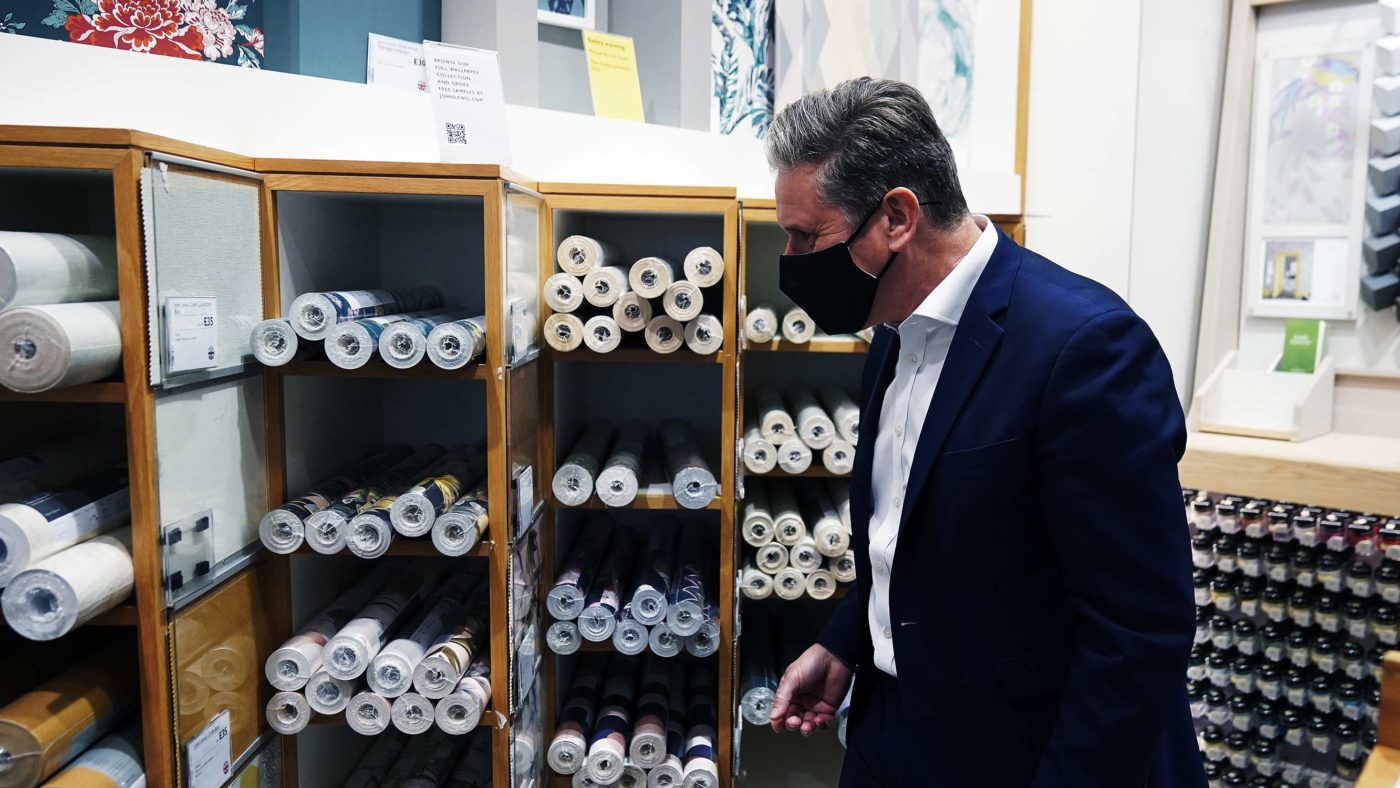As political stunts go, Keir Starmer’s visit to the wallpaper section of a John Lewis in Manchester barely registers. This was hardly Maggie in a tank, George W Bush turning up in a fighter jet or Bush senior pulling out a bag of crack from under his desk in the Oval Office (seriously, look it up).
Though it’s unlikely to trouble future historians unduly, Starmer’s attempt at a bit of light visual banter did suggest a few more important problems with his recent strategy, and his leadership more broadly.
On the immediate question of Flat-gate, popping up in a department store felt at odds with Labour’s insistence that the redecoration stuff is a Very Serious Matter about who paid for what interiors, how it relates to the Nolan principles and so on. If anything, it played better with the Conservatives’ own attack line that the opposition is indulging in “game-playing”, while the Government gets on with bread-and-butter issues.
Nor does the flat controversy seem to have had a seismic effect on public opinion. A NumberCruncher survey taken this week gave Boris Johnson’s party a 9-point lead over Labour, while YouGov had them 11 points up. Even the much tighter poll for today’s Sunday Times has Johnson well ahead of Starmer on several key leadership metrics, suggesting the ceaseless attacks have not done much to dent the PM’s personal brand.
At the same time, the John Lewis mini-stunt (if ‘stunt’ is even the right word to convey something as passive as looking at a few rolls of wallpaper) did hint at what might have been a more effective Labour strategy. Rather than going all forensic, Starmer should have concentrated on the sheer cost of the Prime Minister’s refurb. Who, after all, spends almost £90,000 on getting their flat done up? Is this a sign of someone with extraordinarily expensive taste, without a real grasp of money, or perhaps both?
The former New Labour spin doctor Lance Price observes that political stunts “work when they reinforce a view that most inattentive voters are generally inclined to accept”. Margaret Thatcher on a tank worked, Price argues, because people already thought of her as strong on defence. Likewise with David Cameron hugging huskies, it wasn’t the trip to the Arctic that made people think he was a new kind of Tory, it was already his brand as a politician, which the photo op reinforced.
In the case of John Lewis, the message fell somewhat flat because the idea of Johnson as some great lover of luxury has not taken root in the public imagination. If it had, Starmer’s understated jibe might have been a bit more piquant.
The deeper problem for Starmer is that he is still far too one-note to make much of an impression on the public. Granted, that note – serious, lawyerly and professional – is not necessarily negative in itself, but the best politicians are able to switch register easily and show different sides of themselves. They are also capable of a telling soundbite and a pithy comeback, and it’s quite hard to remember anything really wounding that Sir Keir has landed on his opposite number, even with the ample material the last year has provided.
Ultimately, of course, the test of political leadership is at the ballot box. Fail to hold on in this week’s Hartlepool by-election, and it’s Starmer, not Johnson, who will be facing questions about his future.
Click here to subscribe to our daily briefing – the best pieces from CapX and across the web.
CapX depends on the generosity of its readers. If you value what we do, please consider making a donation.


